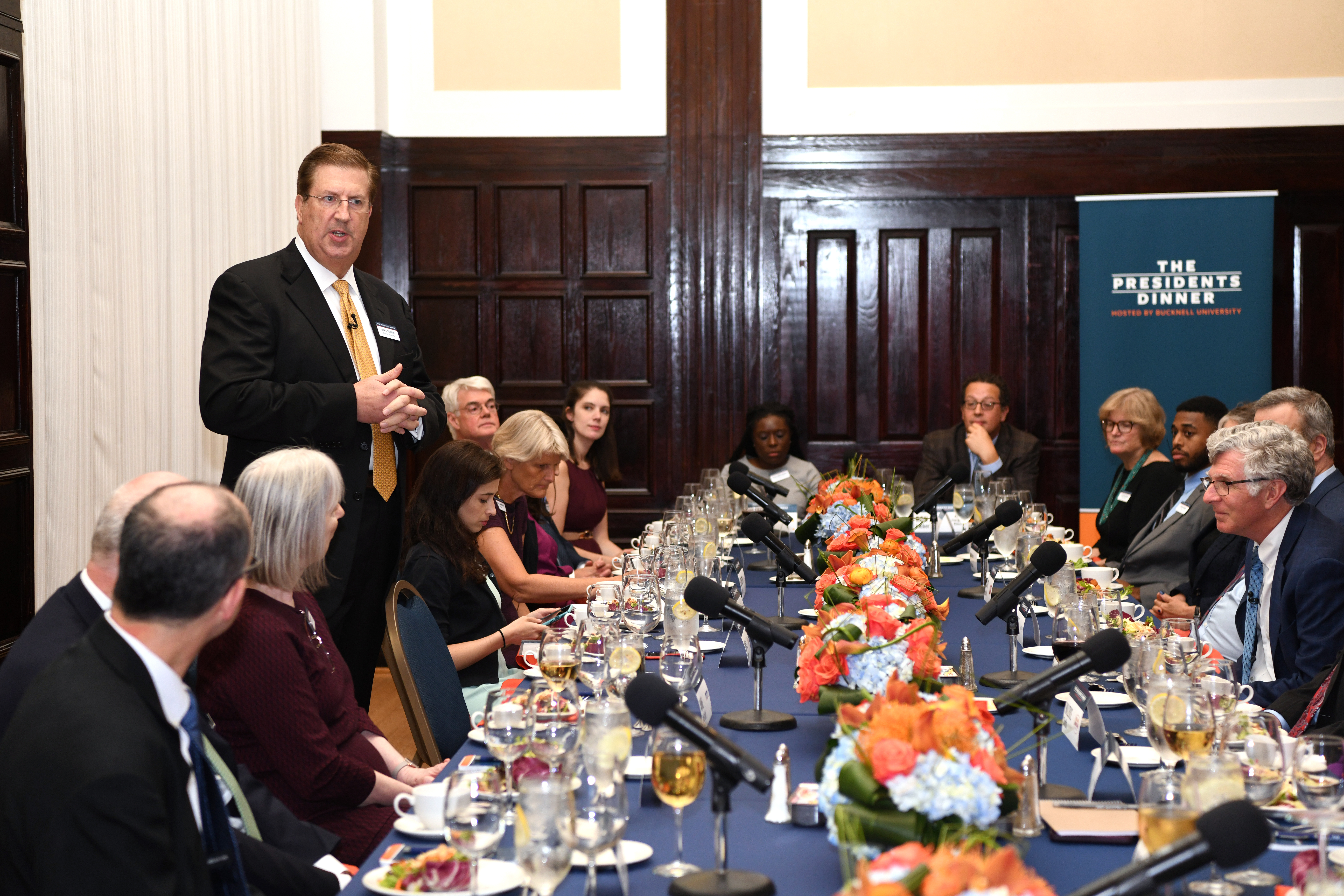Top officials from colleges and universities convened the week of September 2 in Washington, D.C., to discuss matters impacting higher education and what’s on the minds of leaders—from sexual assault on campus and public confidence in the higher ed sector to declining enrollment.
Major themes emerged at The Presidents Dinner hosted annually by Pennsylvania’s Bucknell University.
The topic of higher education costs, which Bucknell University President John Bravman told attendees are rising “at a rate well ahead of inflation” and above what the average American household can afford, kicked off the event. Costs are contributing to higher ed’s diminishing reputation in society, he said.
The sector has been “one of the glories of this country and the envy of the world,” but its “core values, our purposes, our efficacy and our costs” are being challenged, he added.
Declining enrollment
“Confidence, continuity, community, cost are the four big topics that start to encompass all that we worry about as we try to affirm our values and do our jobs as educators,” Bravman told attendees.
For the past several years, presidents have seen a general decline in the college-going population. Demographers believe it will “bottom out” around 2023 and rise again, but with a different population of students, Bravman noted.
He said many institutions will be caught off guard by this year’s enrollment declines. For instance, Bucknell fell short by about 2% of securing its targeted number of students.
Brian Rosenberg of Macalester College in Minnesota cited data from 28 small liberal arts colleges in the Midwest—10 of which didn’t hit 70% enrollment this year. He questioned how attendance numbers would impact the future of higher education and for these particular institutions.

“That is an existential growth problem,” he said. “These are, by and large, schools that graduate a much higher percentage of students than the average. What are the implications for a system that is already struggling to graduate an appropriate number of students?”
President Mary Schmidt Campbell of Spelman College, the Atlanta-based historically black women’s college, pointed to college affordability as the reason for fewer college-going students. The matter is more acute in communities of color, where she says average household incomes are flat and predicted to decline over the next decade.
Title IX compliance
The group also discussed the handling of sexual abuse and harassment on college campuses. The U.S. Department of Education’s proposed new Title IX rule would require higher ed institutions to enforce hearings that include cross-examination of both the accused and accuser.
Also read: More UB content on higher ed leadership
If the controversial rule becomes codified, it will have a “chilling effect” on the reporting of sexual assault on campus, says Clayton Rose of Bowdoin College in Maine. Elizabeth H. Bradley, president of Vassar College in New York, said they will do “what’s best” for students.
Phil Glotzbach, the head of Skidmore College in New York, said it could lead to “chaos” as institutions seek to create a new adversarial system of hearings with cross-examinations while complying with state rules that align with the Obama administation’s 2017 regulations. “We would be faced with the dilemma of trying to comply with state regulations and federal regulations,” he said. “It puts us in an untenable position.”
Emily Ann Brown is associate editor.





